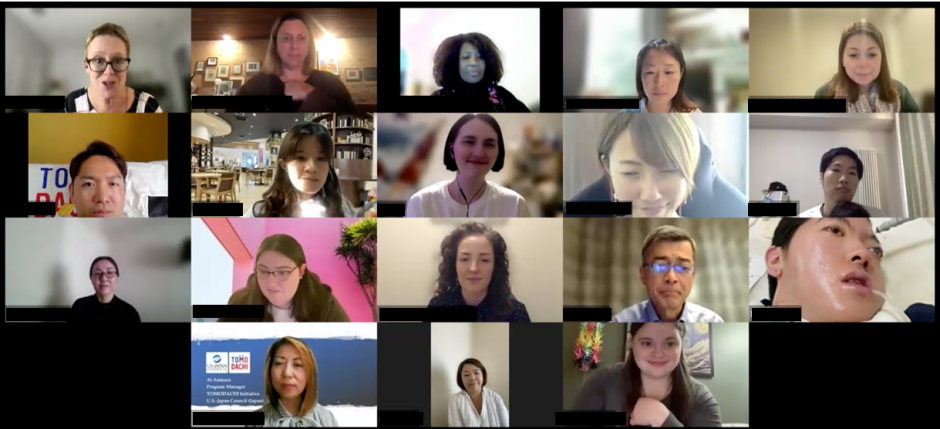TOMODACHI Story Jam for Youth with Disabilities Celebrates Youth With Disabilities’ Advocacy Story Videos

Ten participants of the TOMODACHI Story Jam for Youth with Disabilities for successfully completing the program.
TOMODACHI Story Jam for Youth with Disabilities, a nine-week (September–November) digital storytelling and youth leadership program, brought together 10 Japanese and American youth with disabilities to share their experiences of overcoming challenges.
The program was supported by Northrop Grumman Corporation (NGC) and implemented by the University of Massachusetts Boston’s Institute for Community Inclusion (ICI) .
Participants were selected based on their leadership experience and engaging story proposals. They engaged in weekly Story Jam sessions, discussing moments when they faced significant challenges, how they navigated these challenges, what they learned about themselves, and how their insights and experiences can translate into positive change for themselves and their community.
Guest speakers, including disabled storytellers and advocates from Japan and the U.S., enriched the discussions. The program culminated in the screening of the participants’ four-minute advocacy story videos at a final event on November 2 (US) / November 3 (Japan).
At the event, participants reflected on their program experience and shared their thoughts on how they will use their new leadership, storytelling, and advocacy skills in the future.
When asked about their favorite part of the TOMODACHI Story Jam Program, Ayami Azemoto shared, “I particularly enjoyed crafting scripts and receiving feedback from both participants and StoryCenter staff when making my video. Receiving feedback on
experiences and stories that may seem ordinary to me helped deepen my understanding, enabling me to articulate them more effectively to others.” Sunao Shoji expressed: “My favorite part of the program is its focus on encouraging cross-cultural exchange. Because I have a different background than the other participants in terms of residence, culture, and disability, I was able to ask myself “What is an inclusive society?’ I would not have been able to meet this group if I had not participated in this program, so I am very grateful for this opportunity.”
Reflecting on the program experience Briana Livelsberger shared, “The most challenging aspect of making the video was trying not to be too overly critical at every stage because this is a story that has a lot of emotional weight for me. I kept second-guessing in each part about if I was portraying everything and getting everything the way that I wanted it to be. Ultimately, the process was a bit difficult at times, but it turned out to be a truly enjoyable experience and resulted in the best possible outcome for my video.” Brandy Eber, Public Diplomacy Officer of the U.S. Embassy Tokyo, highlighted the power of storytelling to bring together diverse perspectives in her remarks at the event. NGC Japan’s CEO Om Prakash and Mark Ikeno, Executive Director of the U.S.-Japan Council(Japan), congratulated the storytellers on their impactful videos and disability advocacy messages.


